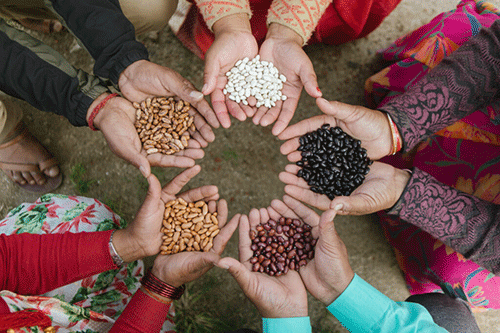Namibia has launched its first Community Seed Bank in the Kavango West region to help safeguard local seed varieties to promote biodiversity and ensure food security.
The Environment Investment Fund (EIF), an environmental fund of Namibia, announced the latest initiative and outlined the various benefits that lay ahead.
EIF spokesperson Lot Ndamanomhata said the primary objective of the seed bank is to protect natural resources by preventing the over-exploitation of different seed varieties.
“This proactive intervention not only prevents resource depletion but also ensures the preservation of seeds for the benefit of future generations,” he said.
He further said, “Community seed banks play a crucial role in collecting, storing and safeguarding local seeds. In times of crop damage or destruction, these banks act as an emergency seed supply, enabling farmers to access seeds for the next planting season”.
Beyond preserving seeds, the project emphasises a broader goal of protecting natural resources, promoting environmental sustainability and ensuring that Namibia’s future generations have access to diverse and resilient agricultural resources.
Ndamanomhata highlighted that this initiative goes beyond financial support, representing a shared commitment to environmental sustainability and the preservation of the country’s natural heritage.
The EIF was officially launched in 2012, and it is currently funded by a government allocation, with the mandate to tap into local conservation fees and environmental levies.
These funds will be used to invest in the protection of the environment, its biological diversity and ecological life-support functions, as well as the promotion of sustainable natural resources use for economic development by supporting green and environmental enterprises.
Namibia intends to expand the establishment of such infrastructure, with plans for upcoming projects in other regions within the next five years.
While Namibia introduced its inaugural community seed bank in 2023, neighbouring countries, such as Zambia, South Africa and Zimbabwe, have already extensively embraced this practice, with Zimbabwe currently boasting 26 community seed banks. -Nampa/Xinhua


